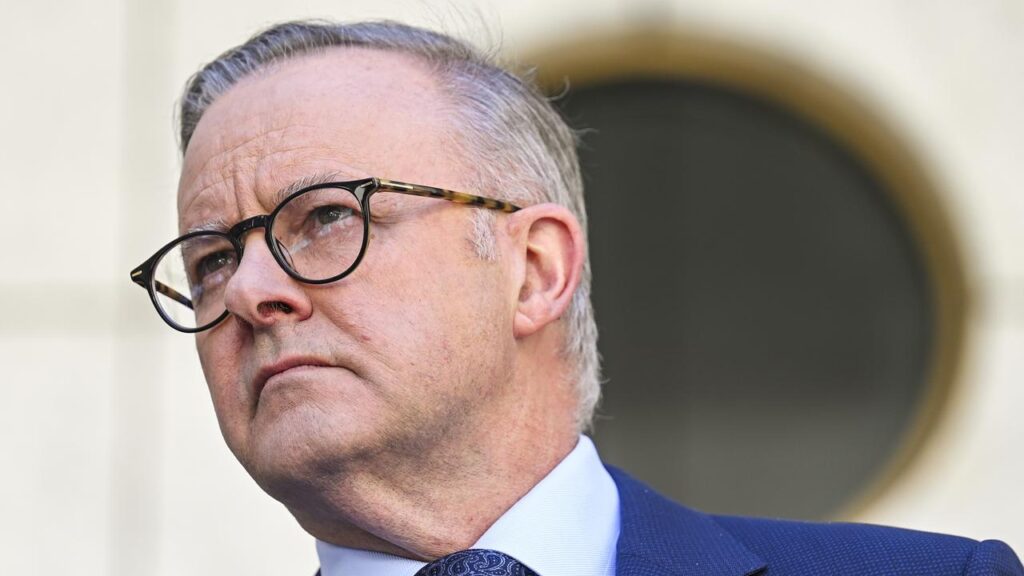The government’s plan to help women escape abusive relationships is not enough to address the issue, the prime minister said.
Under the new program, which is part of a $925 million emergency budget, victims of domestic violence will receive $5,000 payments.
The government’s new program aimed at helping domestic violence victims is expected to be implemented in 2025.
I want women to know if they need to leave, they can afford to go.
Yesterday we took significant steps to help women escaping violent partners. With up to $5000 of financial support as part of our Leaving Violence Program. pic.twitter.com/zv8p1m9ep0
— Anthony Albanese (@AlboMP) May 2, 2024
Critics say the announcement was made a year before it would become a permanent feature.
The opposition also pointed out the lack of sufficient funding for crisis services.
Addressing the issue of domestic violence won’t be the only solution, as it requires governments to take action, Anthony Albanese said on Thursday.
He defended the government’s decision to delay the implementation of the program, noting that the government has a responsibility to ensure that the victims are receiving the money.
The cabinet will hold a series of meetings in the coming months to discuss the issue of domestic violence and the sharing of data related to gendered violence. As part of the government’s efforts, he noted that authorities would have the necessary information to identify perpetrators.

The opposition claimed that despite the government’s united front on addressing the issue of gendered violence, there is still a lot of work to be done. Peter Dutton, the leader of the opposition, said there is a lot of frustration among the police and social workers about the lack of progress.
The lack of funds allocated for the program has also affected the victims’ ability to find suitable accommodations. Larissa Waters, a senator from the Greens, said the government’s response was not enough. She noted that the victims were still not receiving the money due to the delays and maladministration of the program, which was established under Scott Morrison.
Hundreds of violent men are still on the waiting lists for behavioral change programs, which can potentially compromise the safety of the public. The government has identified these as key services that need to be accessed by perpetrators.
Providers of these services noted that they were not able to cope with the high demand for their services. According to No to Violence, about 480 men in NSW were on the waitlists, and the average wait time for them is around three to five months. About half of these men were still in relationships.
In Australia, the magistrates court in Victoria decided to end its court-mandated program for domestic violence counseling on July 1. It noted that the program did not meet the community’s needs due to its strict entry requirements. Only around four percent of the people ordered to attend counseling sessions received them.
In response to the court’s decision, the Premier of Victoria, Jacinta Allan, said that the government had no involvement in the decision. She urged the public to continue supporting these programs.

